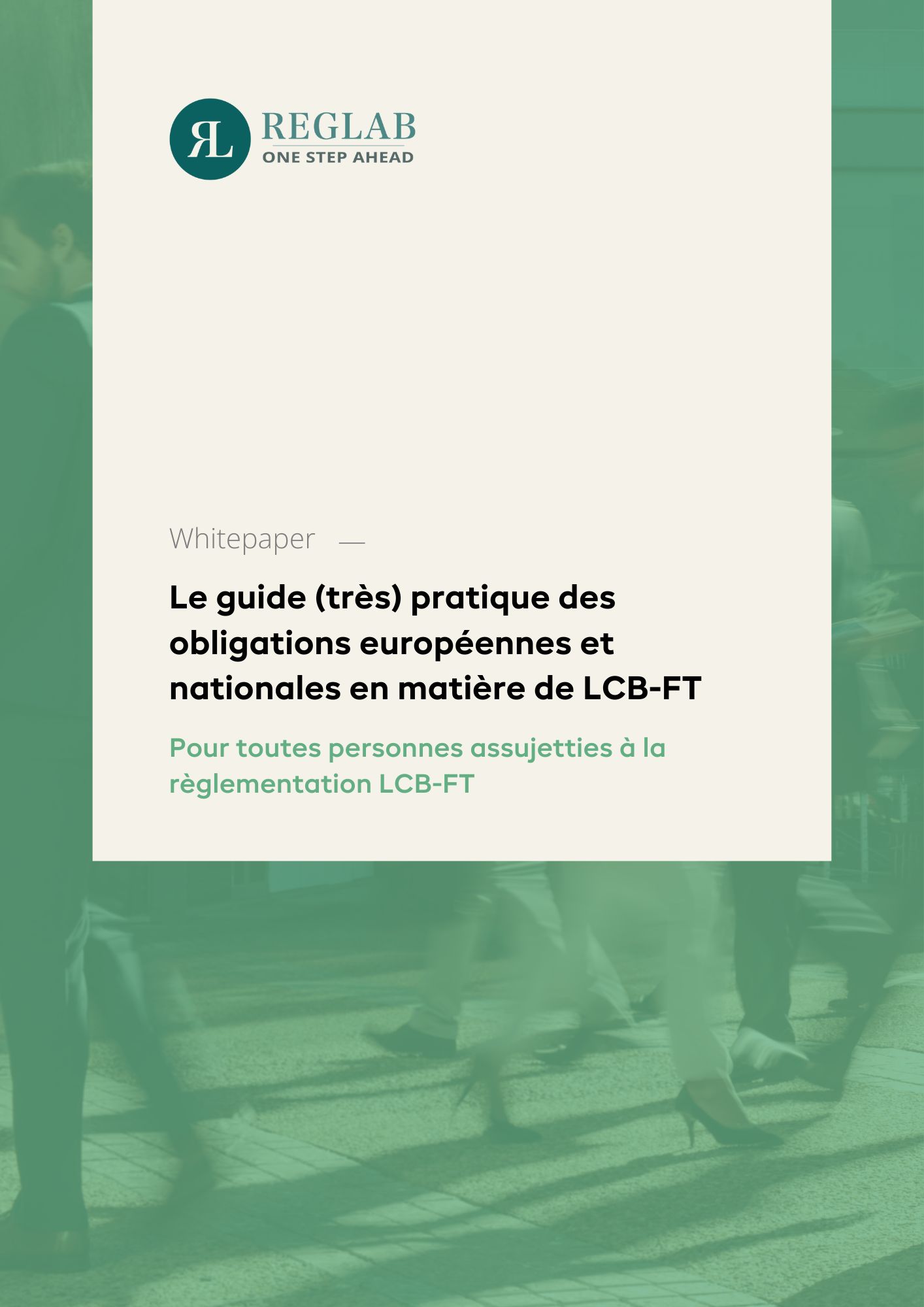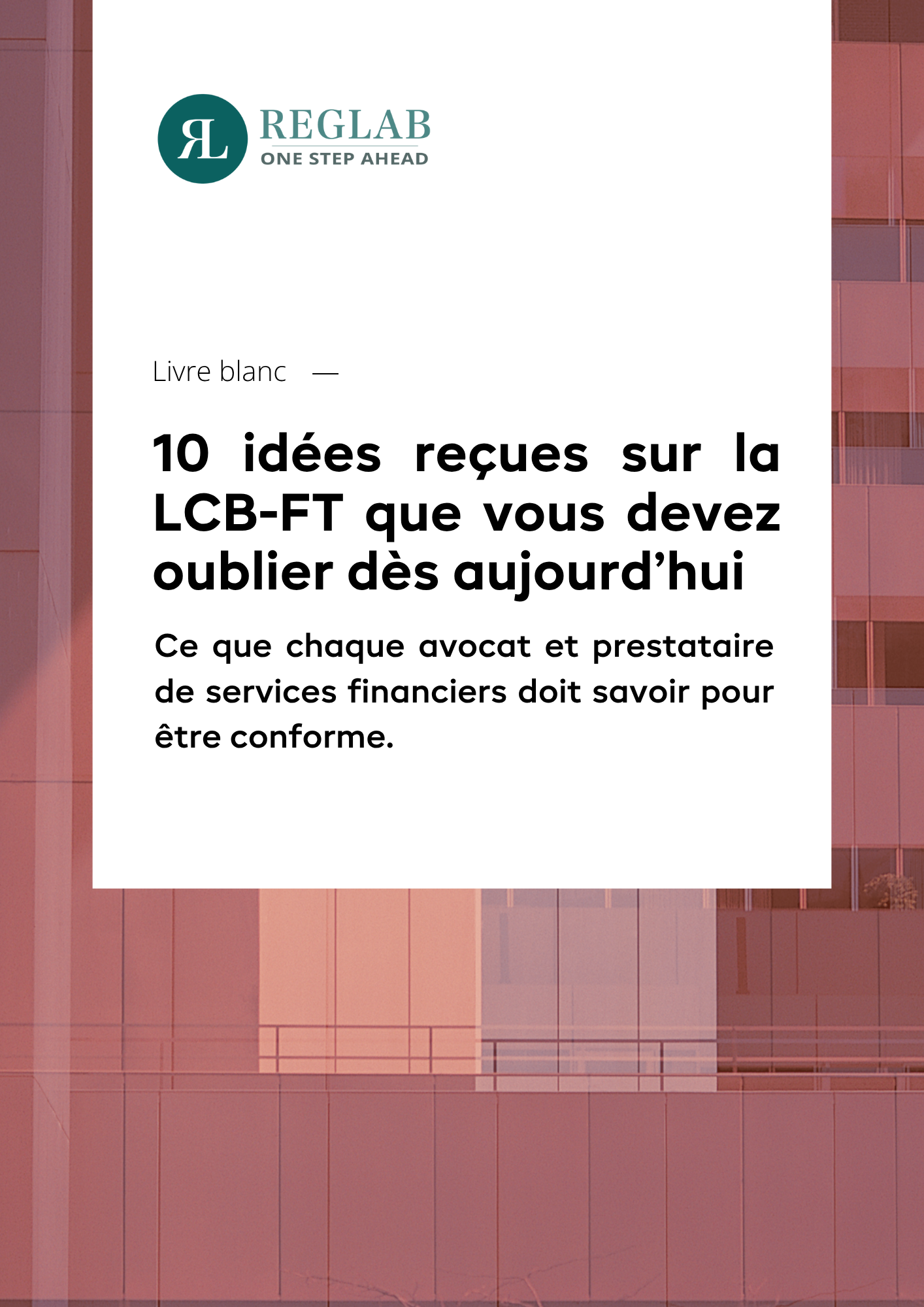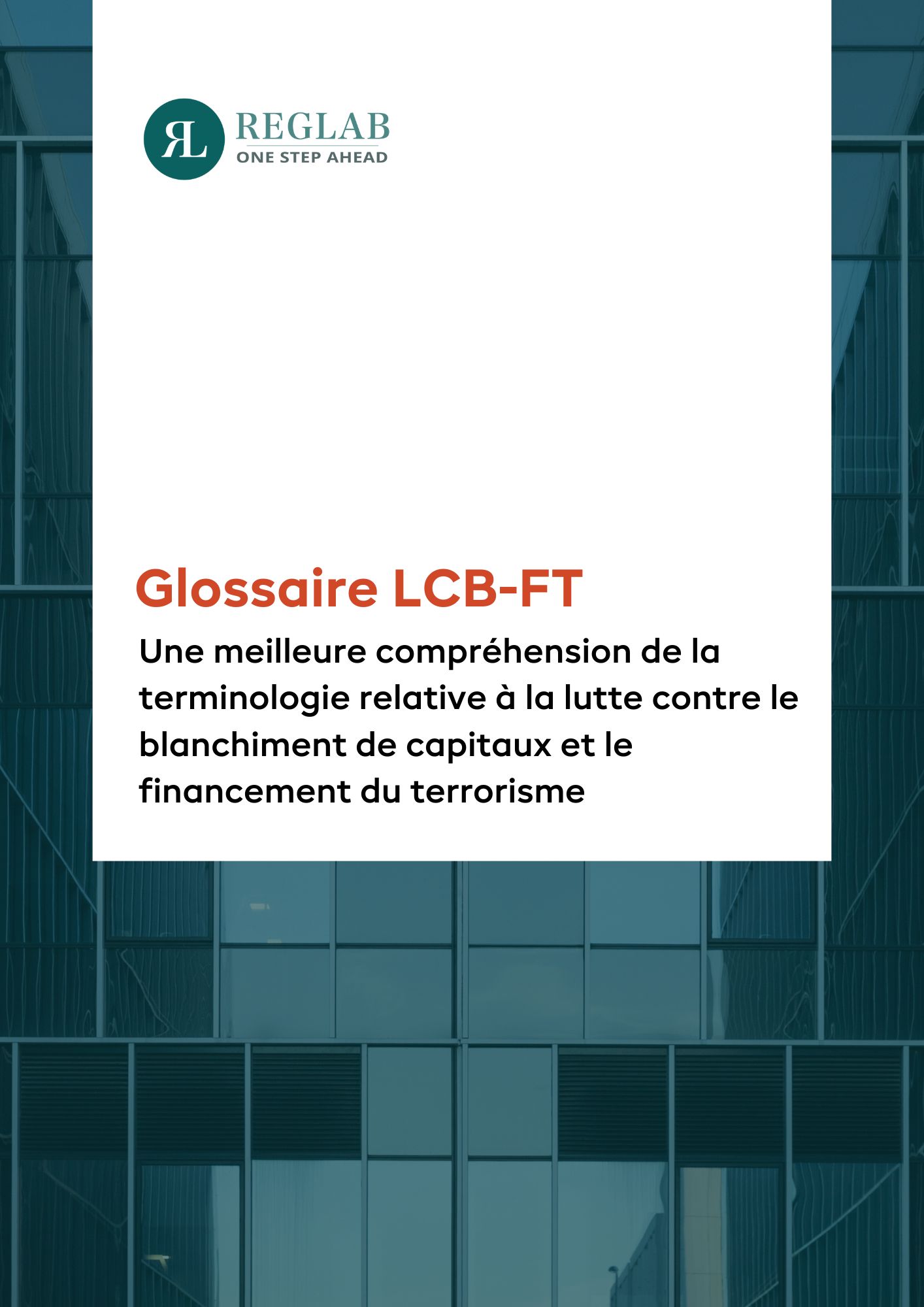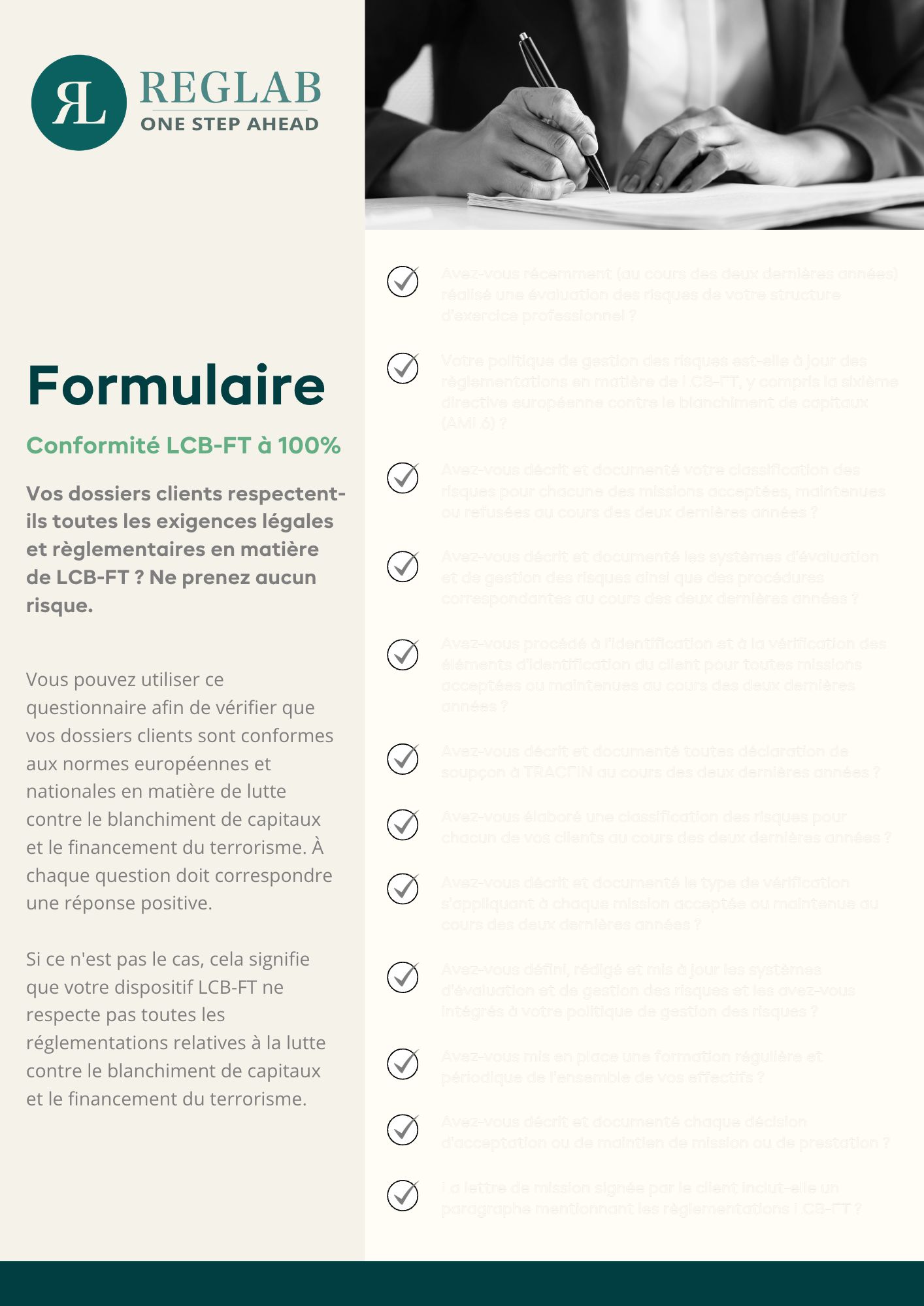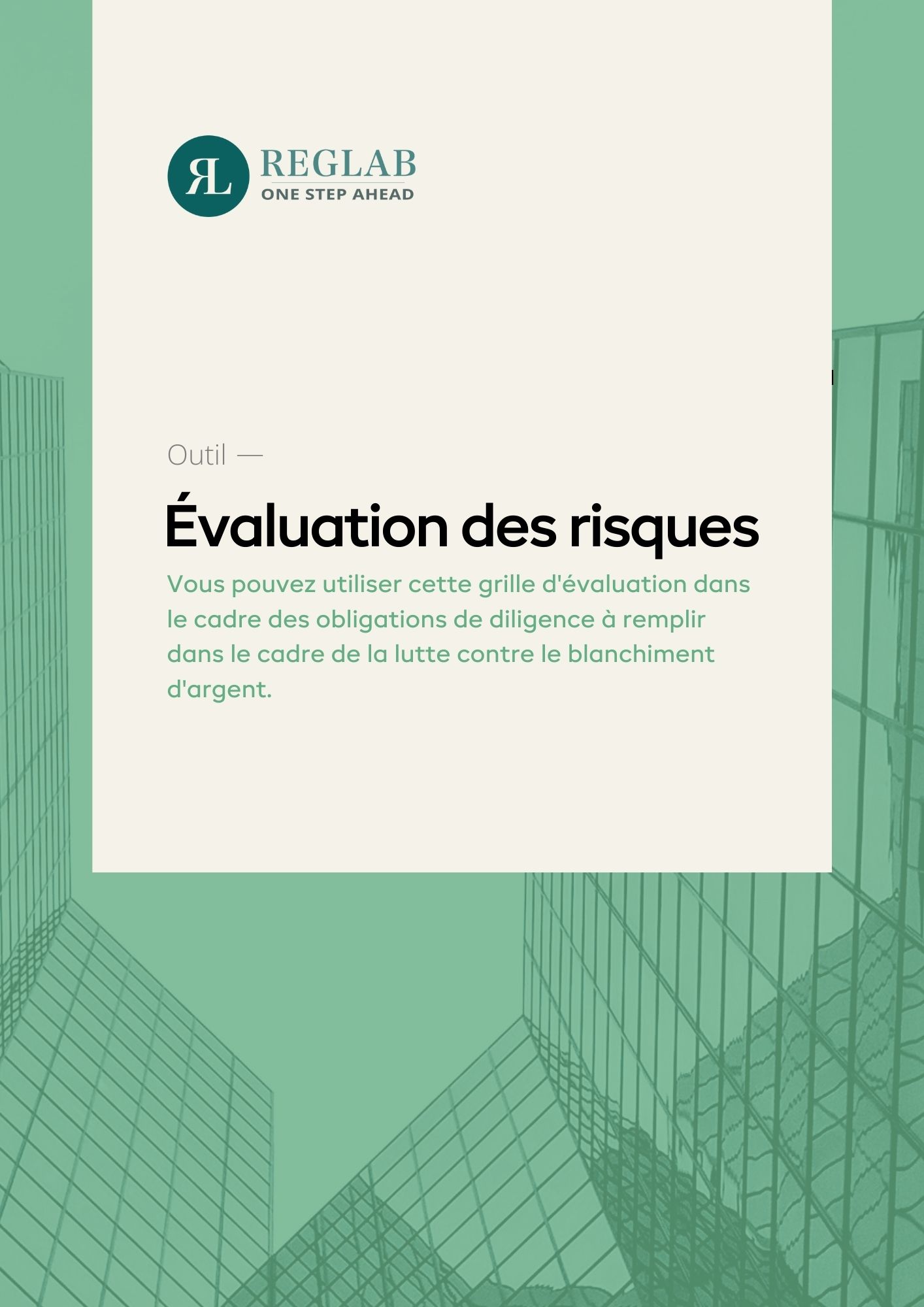- Nos produits
- RegLab pour...
- Knowledge centre
Questions les plus fréquentes
Téléchargez notre livre blanc >
 Dix mythes sur la prévention du blanchiment d'argent et des conseils pratiques pour les éviter.
Dix mythes sur la prévention du blanchiment d'argent et des conseils pratiques pour les éviter. - Contactez-nous
En savoir plus >
Nous proposons nos services dans l'optique de créer un environnement meilleur pour une relation d'affaire durable avec vos clients.
- Démonstration
Knowledge Centre
Le Knowledge Centre met à disposition les livres blancs, des témoignages de clients et des articles de blog. Vous y trouverez également des informations détaillées au sujet de la directive LCB-FT, des bénéficiaires effectifs, des personnes politiquement exposées (PPE) ainsi que les listes de sanctions en vigueur.
« Conformité LCB-FT à 100% »
Vous trouverez un certain nombre d'articles rédigés par des juristes et autres professionnels du droit afin de vous préparer au mieux aux contrôles réalisés par les organismes de contrôle, complétés par des sources d'informations utiles que vous pouvez immédiatement mettre en pratique. Ce contenu se base sur les questions fréquemment posées par ces organismes lors des audits.
En qualité d'avocat, vous vous devez d'identifier et de vérifier les éléments d'identification de vos clients. Vous êtes assujettis aux obligations relatives à la lutte contre le blanchiment de capitaux et le financement du terrorisme. Il vous revient de mettre en place une organisation, des procédures et des mesures de contrôle interne en matière de LCB-FT.
Comment déterminer si un dossier est soumis au dispositif LCB-FT ?
Le superviseur est sur le point de se rendre dans votre bureau. Sa première question sera la suivante : « Comment déterminez-vous si un dossier est soumis au dispositif de lutte contre le blanchiment de capitaux ? »
Pouvez-vous me montrer vos dossiers AML ?
Le superviseur est sur le point de vous rendre visite. Dans cet article, nous abordons la question suivante : "Pouvez-vous me montrer vos dossiers de lutte contre le blanchiment d'argent ?"
Disposez-vous d'une politique interne basée sur le risque et, dans l'affirmative, puis-je la consulter ?
Attendez-vous à cette question lors d'un contrôle. Dans la pratique quotidienne, il s'avère que répondre à cette question de manière satisfaisante peut être un véritable défi.
Des procédures de lutte contre le blanchiment d'argent ont-elles été élaborées ?
Cet article s'appuie sur la politique écrite de gestion des risques. Dans ce blog, nous reviendrons plus en détail sur ces procédures. Comment mettez-vous ces processus en pratique et que montrez-vous lors d'un audit ?
Des cours sur la lutte contre le blanchiment d'argent sont-ils suivis au sein du bureau ?
Pouvez-vous indiquer si vous et/ou d'autres employés suivez des cours consacrés à la lutte contre le blanchiment d'argent ? Quelle est la fréquence de ces cours et quand a eu lieu le dernier cours ?
Comment avez-vous conçu le poste de responsable conformité ?
Le poste de responsable conformité a été introduit dans la profession juridique au cours des dernières années. Ce responsable doit être en mesure de travailler indépendamment du conseil d'administration.
Avez-vous déjà signalé une transaction inhabituelle ?
Comment réagissez-vous si l'autorité de contrôle vous pose cette question ? Les normes en matière de LCB-FT comporte deux obligations principales : l'identification des clients et le signalement de toute transaction inhabituelle.
Incluez-vous un paragraphe sur la lutte contre le blanchiment de capitaux dans votre lettre de mission ?
La lettre de mission est un élément important de l'audit de l'autorité de contrôle. À quoi ressemble le processus de rédaction de la lettre de mission ?
LCB-FT : les six sujets ayant récemment fait débat
Ci-dessous, vous trouverez un aperçu des sujets ayant récemment fait débat.
AMLR et AMLA
L'AMLR est le nouveau règlement européen sur la lutte contre le blanchiment d'argent qui entrera en vigueur en 2027. Qu'est-ce qui va changer pour votre entreprise ? Découvrez dans cet article tout ce qu'il faut savoir sur l'AMLR et le nouveau régulateur AMLA.
La directive AML/LCB-FT
AML est le terme de référence pour désigner la législation internationale, transposée au niveau national dans les textes législatifs et règlementaires LCB-FT (Lutte Contre le Blanchiment d'argent et le Financement du Terrorisme) – ou LBC-FT (Lutte contre le Blanchiment de Capitaux et le Financement du Terrorisme).
AML/LCB-FT : 5 FAQ
La directive LCB-FT est née de la fusion de deux lois préexistantes: la loi sur l'identification (services financiers) et la loi sur la divulgation des transactions inhabituelles. Vous trouverez ci-dessous les 5 questions les plus fréquemment posées à propos de cette directive.
KYC : la signification
Chaque institution financière européenne doit filtrer ses clients avant de les accepter. Cet article explique ce qu'est la procédure de connaissance du client (KYC), ce qu'implique cette procédure et l'importance de la diligence raisonnable à l'égard de la clientèle (CDD – Client Due Diligence).
Registre national des gels des avoirs
Le Registre national des gels des avoirs est un outil crucial pour les avocats et autres professionnels qui doivent vérifier régulièrement si leurs clients sont soumis à des mesures de gel d'avoirs en France.
Qui sont les PPE et comment les filtrer ?
PPE est l'acronyme de "personne politiquement exposée". En raison de leur position influente, le risque de blanchiment d'argent est par exemple plus élevé. Quand est-on une PPE et comment cela se vérifie ?
Le bénéficiaire effectif : qu'est-ce que c'est ?
L'UBO est un bénéficiaire effectif. Si vous êtes soumis à la lutte contre le blanchiment d'argent, vous devez contrôler cette personne et sa propriété effective. Si vous ne le faites pas, vous risquez d'être sanctionné.
Qui sont les pseudos-bénéficiaires?
Chaque personne évoluant dans le domaine de la LCB-FT, les services juridiques ou financiers, a déjà entendu parler du terme Bénéficiaire Effectif. Mais connaissez-vous les bénéficiaires effectifs “par défaut” ?
AML : Les plus grands défis
Voici un aperçu des questions qui retiennent l'attention de notre responsable conformité. Quels sont exactement les plus grands défis et où y a-t-il une marge de progression ? Vous pouvez en savoir plus dans les articles ci-dessous.
Mise à jour de la politique de lutte contre le blanchiment de capitaux
La politique de lutte contre le blanchiment de capitaux est un élément dynamique de votre entreprise. Ces changements peuvent avoir une incidence sur votre politique.
Informations requises
En tant qu'avocat, vous devez toujours identifier votre client (potentiel). En outre, chaque client doit faire l'objet d'une vérification par rapport aux listes de sanctions. Pour identifier les personnes physiques et morales, vous demandez différents documents. Cet article explique de quels documents il s'agit selon la réglementation LCB-FT.
L'Analyse des Listes de Sanctions
L'analyse des listes de sanctions est une pratique essentielle qui ne se limite pas qu'à l'inspection des listes de sanctions en vigueur. Elle implique également une vérification approfondie des listes de pays considérés à haut risque pour chaque partie impliquée.
Le profil de risque en matière de LCB-FT
Dans cet article, je réponds aux questions les plus fréquemment posées sur le profil de risque en matière de LCB-FT. Comment déterminer le profil de risque adéquat, que dois-je noter et quel type de recherches, de mesures de vigilance et de suivi dois-je effectuer ?
Le suivi obligatoire des dossiers clients
Vous effectuez des contrôles de lutte contre le blanchiment d'argent lors de l'intégration des clients. L'une des obligations les plus importantes en matière de lutte contre le blanchiment d'argent vient juste après : le suivi régulier des clients.



Des informations précieuses
Les articles suivants offrent des informations précieuses sur la LCB-FT et d'autres réglementations auxquelles vous serez confronté lors de l'accueil de clients (potentiels).
Collaboration avec d'autres cabinets
Les cabinets se transmettent régulièrement du travail. Malheureusement, il arrive que les obligations en matière de LCB-FT ne soient pas respectées dans le cadre de cette structure de collaboration.



Le guide pratique des obligations européennes et nationales en matière de LCB-FT
— Livre Blanc
Pour toutes personnes assujetties à la règlementation LCB-FT.
10 idées reçues sur la LCB-FT que vous devez oublier dès aujourd'hui
— Livre Blanc
Nous avons répertorié dix mythes sur la prévention du blanchiment d'argent et vous donnons des conseils pratiques pour améliorer votre processus.
Glossaire LCB-FT
— Glossaire
Découvrez la terminologie clé de la conformité LCB-FT pour une conformité efficace.
« Conformité LCB-FT à 100% »
— Formulaire
Vos dossiers clients respectent-ils toutes les exigences LCB-FT ?
L'évaluation des risques : un outil
— Outil
Évaluez facilement le niveau de risque de votre client.
Témoignage —
Svalner Atlas Advisors (anciennement Atlas Tax Lawyers)
« RegLab nous a aidés à uniformiser nos procédures. »
— En savoir plus
Témoignage —
d&a partners
« Nous recommanderions sans hésiter RegLab à d'autres cabinets cherchant à optimiser leur gestion de la conformité. »
— En savoir plus



























